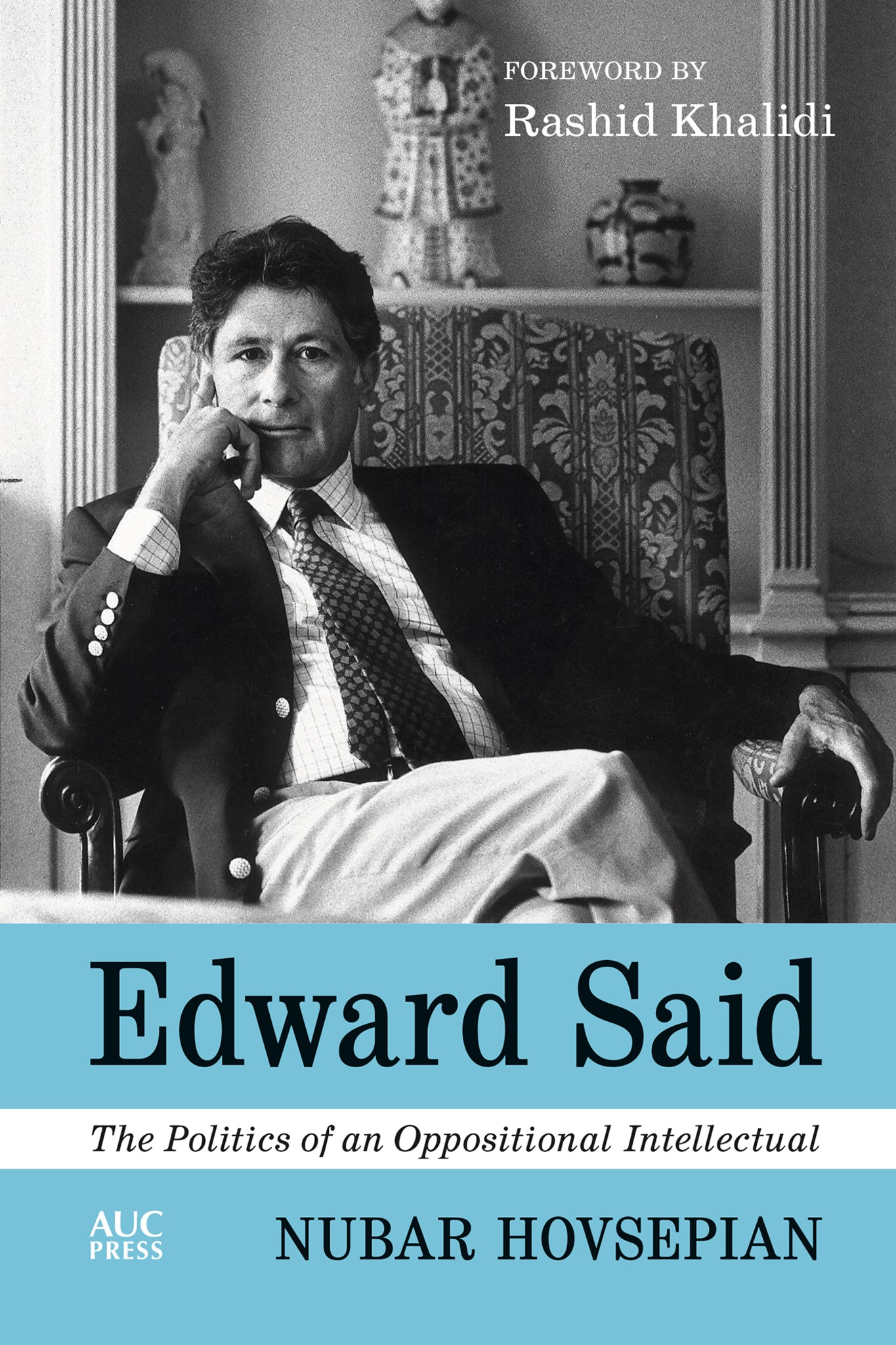We're sorry. An error has occurred
Please cancel or retry.
Edward Said

Some error occured while loading the Quick View. Please close the Quick View and try reloading the page.
Couldn't load pickup availability
- Format:
-
03 June 2025

“A learned and intimate exploration of Said’s thought with deep relevance for today’s debates about Palestine and Israel and American intellectual life.”—Peter Beinart, author of Being Jewish After the Destruction of Gaza
An exploration of the political thought of one of the twentieth century's most influential thinkers and the foremost advocate for the Palestinian cause in the West
Edward Said was one of the most influential intellectuals of the twentieth century. A literary scholar with an aesthete’s temperament, he did not experience his political awakening until the 1967 Arab–Israeli war, which transformed his thinking and led him to forge ties with political groups and like-minded scholars. Said’s subsequent writings, which cast light on the interplay between cultural representation and the exercise of Western political power, caused a seismic shift in scholarly circles and beyond. In this intimate intellectual biography, by a close friend and confidant, Nubar Hovsepian offers fascinating insight into the evolution of Said’s political thought.
Through analysis of Said’s seminal works and the debates surrounding them, Edward Said: The Politics of an Oppositional Intellectual traces the influence of Foucault on Said, and how Said eventually diverged from this influence to arrive at a more pronounced understanding of agency, resistance, and liberation. He consequently affiliated more closely with Raymond Williams, Antonio Gramsci, and more contemporaneously, with his friends the late Eqbal Ahmad and Ibrahim Abu-Lughod.
Said held that it is the intellectual’s responsibility to expose lies and deceptions of the holders of power. A passionate advocate for the Palestinian cause, his solidarity did not prevent him from launching a sustained critique of the Palestinian leadership. Hovsepian charts both Said’s engagement with the Palestinian national movement and his exchanges with a host of intellectuals over Palestine, arguing that Said’s interventions have succeeded in changing the parameters of the discourse in the humanities, and among younger Jews searching for political affiliation.
Drawing on his diaries, in which he recorded his meetings with Said, as well as access to some of Said’s private letters, Hovsepian illuminates, in rich detail, the trajectory of Said’s political thinking and the depth and breadth of his engagement with peers and critics over issues that continue to resonate to this day.

POLITICAL SCIENCE / History & Theory, BIOGRAPHY & AUTOBIOGRAPHY / Philosophers, PHILOSOPHY / Political, BIOGRAPHY & AUTOBIOGRAPHY / Social Activists, POLITICAL SCIENCE / Colonialism & Post-Colonialism, HISTORY / Middle East / Israel & Palestine, SOCIAL SCIENCE / Sociology / Social Theory, Biography: historical, political and military, Political leaders and leadership

“Political scientist Hovsepian (Palestinian State Formation) delivers an incisive portrait of his ‘dear friend’. . . . It’s a moving tribute to an intellectual giant and a first-rate work of scholarship.”—Publisher’s Weekly
“Nubar Hovsepian provides us with a novel and truly compelling way of understanding Said’s thinking over time that could only have come from someone with as long and close a personal friendship with Said as the author had. Hovsepian reveals his extraordinary command of Said’s entire corpus of writings, which he examines in a manner that is both erudite and lucid. What emerges is a scholarly yet intimate but not uncritical study of Said’s life of the mind that speaks not only to Said’s brilliance but to his humanity and unyielding morality.” —Sara Roy, author of Failing Peace: Gaza and the Palestinian-Israeli Conflict
“The eloquent record of a unique and intimate friendship, as well as a privileged perspective on three decades of tormented Middle East politics, this volume fills in, like no book before it, what it means—in the messiness of real-world history as it is happening—to be an oppositional intellectual. Hovsepian does not hesitate to speak truth to and about his intellectually powerful friend, and the result is only to strengthen Said’s reputation as a peerless model of the engaged intellectual, committed both to passionate solidarity and to universal values.”—Bruce Robbins, Columbia University
“A learned and intimate exploration of Said’s thought with deep relevance for today’s debates about Palestine and Israel and American intellectual life.”—Peter Beinart, author of Being Jewish After the Destruction of Gaza
Preface: My Special Relationship with Edward Said—Why that matters
Acknowledgments
Chapter 1. Edward Said as Oppositional Intellectual
Chapter 2. Orientalism and its Afterlives
Chapter 3. Imperialism, Culture, and the Colonial Present
Chapter 4. Palestine: Inclusion Without Domination
Chapter 5. Arafat’s Man Turns Oppositional (1998-2003)
Chapter 6. “The Last Jewish Intellectual”
List of Abbreviations
Selected Reference List



